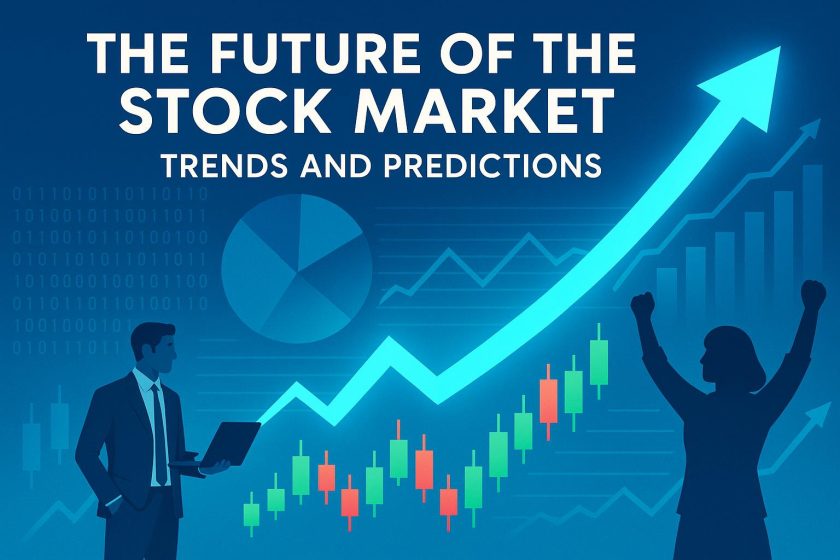The Influence of Technology on the Stock Market
In recent years, the convergence of technology with financial markets has revolutionized how trading and investments are conducted. This transformation is largely driven by the integration of artificial intelligence (AI) and machine learning, which have provided traders and financial institutions with advanced tools to analyze increasingly large datasets. These technologies allow for predictive analytics that can forecast market trends by scrutinizing both historical records and real-time data streams. The ability to interpret vast datasets quickly and efficiently is a game-changer, enabling investors to make more informed decisions and optimize investment strategies.
One of the most significant technological advancements in trading is the rise of high-frequency trading (HFT). HFT leverages complex algorithms to execute an immense volume of trades within fractions of a second. This method contributes significantly to market liquidity and efficiency. However, it also introduces certain challenges such as increased levels of market volatility. The speed and volume of trades can occasionally lead to rapid, unpredictable market movements, including phenomena like flash crashes, where the stock prices plummet drastically within minutes before rebounding. This illustrates a dual edge of technology, providing both solutions and new challenges.
Emerging Markets and Globalization
The economic and financial ascendancy of emerging markets represents another pivotal trend reshaping the global stock market landscape. Capital inflows are increasingly directed towards countries such as China and India, which have transformed into critical components of the global economy due to their brisk economic growth and burgeoning consumer bases. This shift signifies a growing necessity for investors aiming to diversify their portfolios to include emerging markets as part of their investment strategies.
Globalization has simplified the process of accessing these markets. Improved telecommunications and regulatory harmonization across borders have streamlined international investments. However, investors need to remain vigilant about geopolitical tensions and regulatory alterations that could impinge upon their investments in these markets. The interplay between local economic conditions and global market dynamics is often complex, demanding a finely tuned approach to international investing.
Sustainability and Ethical Investing
An important evolution in investment philosophy is the burgeoning demand for sustainable and ethical investing. Investors increasingly consider Environmental, Social, and Governance (ESG) criteria when constructing their portfolios. This shift is fueled not only by moral imperatives but also by the recognition that companies adhering to sustainable practices are well-positioned for long-term success.
As the popularity of ESG-focused funds rises, corporations are incentivized to adopt sustainable business practices to align with investor priorities. This adaptation signifies a shift from a traditional focus on short-term financial results to a broader concern for enduring value creation. Investors today are more inclined to support businesses that demonstrate a commitment to reducing environmental footprints, fostering inclusive workplaces, and maintaining robust governance frameworks.
The Rise of Retail Investors
The democratization of stock trading is evident in the surge of retail investor participation. This trend has been facilitated by technological advances that provide individual investors with unprecedented access to trading platforms, market data, and financial education. The increased presence of retail investors is creating a more equitable trading environment, where individual decisions can have noticeable effects on market trends.
While retail investors possess more tools than ever before, caution is necessary when engaging in the stock market. The rapid dissemination of investment information and advice through social media can lead to impulsive trading decisions. Hasty decisions, often made in response to viral posts, underline the importance of conducting thorough research and seeking professional financial advice before committing to significant investments. Investors must carefully assess the credibility of their information sources and prioritize long-term financial health over short-lived gains.
Regulatory Changes and Market Stability
Regulatory frameworks continue to evolve in response to the fast-paced transformations in the stock market. Regulatory bodies are tasked with ensuring market integrity and safeguarding investor interests. Future regulations will likely emphasize greater transparency, particularly in relation to high-frequency trading operations and the activities of major financial entities.
Tax policies and monetary regulation will also play a decisive role in shaping the investment landscape. Adjustments in taxation can influence investor behavior, either encouraging or deterring certain types of market participation. Staying informed about these regulatory developments is crucial for investors aiming to secure sustainable returns and maintain market confidence.
Conclusion
The evolution of the stock market is driven by a myriad of factors including technological innovation, globalization, a commitment to sustainable investing, and the rise of new investor demographics. These trends offer extensive opportunities for growth and portfolio diversification, albeit accompanied by a unique set of challenges and risks. To successfully navigate this dynamic and multifaceted environment, investors need to remain informed, flexible, and prepared to adapt their strategies as conditions change. Consulting financial advisors and accessing expert analyses can provide critical insights and guidance to better understand and respond to current market conditions.
This article was last updated on: October 9, 2025
